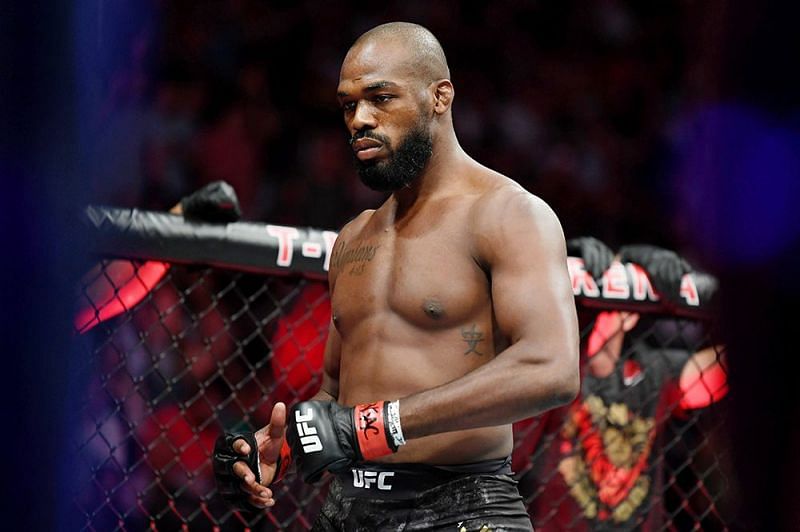
4 times the UFC had to cancel shows
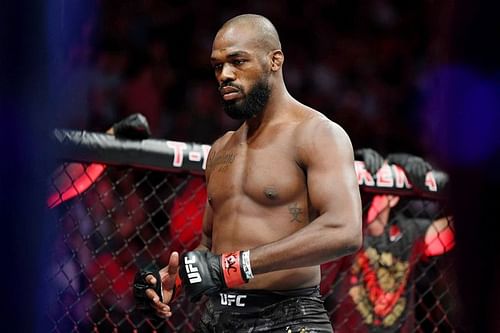
The UFC was set to put on its 9th show of 2020 this weekend, but unfortunately, the outbreak of the Coronavirus has caused the promotion to cancel the card – which was set to take place in London, England – as well as their next two shows, too. Only time will tell whether the long awaited Khabib Nurmagomedov vs. Tony Ferguson clash at UFC 249 will actually go ahead, but one thing is for certain – this has been probably the most trying time in the promotion’s history since their buyout at the hands of Zuffa back in 2001.
Since that time, the UFC has cancelled just a handful of shows; here is a look at them, and the reasons behind their cancellation.
#1 UFC 151: Jones vs. Henderson – 1st September 2012
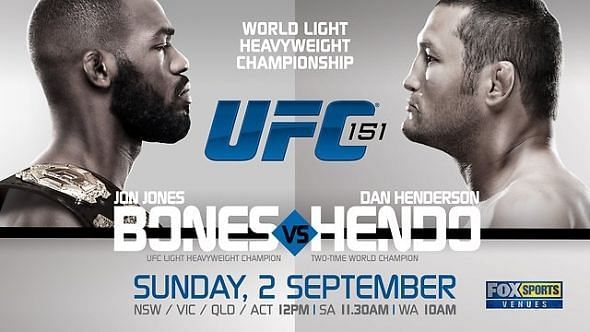
Perhaps the most infamous cancelled show in UFC history, the scrapping of UFC 151 not only caused the UFC to have no shows between 11th August and 22nd September 2012, but it also drove a major wedge between the promotion and one of their greatest ever fighters, Jon Jones, although the issue has since been settled.
The issues began when Dan Henderson, who was pegged to face Jones for the UFC Light-Heavyweight title in the main event, was forced to withdraw with a ruptured MCL just 9 days prior to the show. That left the promotion scrambling for a replacement, and they thought they’d found it in the form of former Middleweight title challenger Chael Sonnen – only for Jones to refuse the fight on such short notice, causing the UFC to scrap the card entirely.
UFC President Dana White seemed to blame Jones – and his head coach Greg Jackson – entirely for the debacle, somehow choosing to ignore the fact that Henderson had reportedly picked up the injury 3 weeks prior to notifying the promotion, and the fact that it was the UFC itself who’d put together such a weak undercard that a different fight couldn’t be elevated into the main event instead.
In the end, the promotion refused to re-name the next show, leaving UFC 151 as a ‘ghost show’ and re-booking the fights onto various other cards – while Jones defended his title against Vitor Belfort at UFC 152 before finally facing Sonnen at UFC 159 in 2013.
#2 UFC 176: Aldo vs. Mendes II – 2nd August 2014
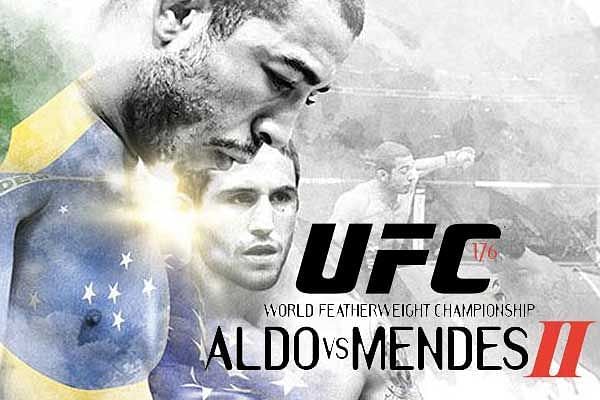
UFC 176 would’ve seen a main event of Jose Aldo defending his UFC Featherweight title against top contender Chad Mendes – but when the Brazilian suffered an injury in training, he was forced out of the event. Despite the injury being reported on June 2nd – a full two months prior to UFC 176 – the promotion were unable to find a replacement main event, and so on July 8th, the event was cancelled entirely.
Thankfully this time, unlike the UFC 151 debacle, nobody was blamed for the cancellation; in reality the UFC didn’t have many viable pay-per-view main events at the time anyway, despite having a plethora of shows scheduled, and the Aldo vs. Mendes fight was rescheduled and went ahead a few months later at UFC 179.
As for the rest of the card? The majority of the fights were re-booked for later shows, while 3 never took place due to injuries, and UFC 176 thus joined UFC 151 on the promotion’s list of ‘ghost cards’ – despite 2012 movie Here Comes The Boom featuring a fictional version of it with a headliner of Junior Dos Santos vs. Shane Carwin – an eerie coincidence considering what would eventually happen to the show.
#3 UFC Fight Night 97: Lamas vs. Penn – 15th October 2016
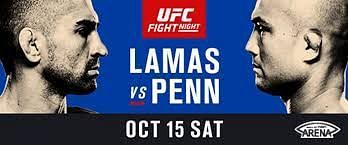
This Fight Night show was cancelled on about two weeks notice when BJ Penn – who was set to face Ricardo Lamas in the main event – withdrew citing an injury, but to be frank, much stranger things were likely afoot here, as the UFC could easily have elevated an undercard fight like Derrick Lewis vs. Marcin Tybura into the top slot and gone ahead with it; there had been far worse Fight Night main events in 2016 alone.
The big rumour at the time was that the cancellation was more to do with the show’s venue. UFC Fight Night 97 was booked to take place in Pasay City, in the Philippines, and the word was that due to the country’s draconian laws on drugs, everyone involved with the card – not just the fighters, but the ring crew, officials and production staff – would be stringently drug tested prior to the event.
The rumour stated that should any of them test positive for any kind of drugs – from PEDs to recreational substances – then the Philippine government would seize their passport. Although the Philippine Games and Amusement Board later denied this report – as did the UFC – it still seems somewhat questionable almost four years on that Penn’s injury would derail an event like this, particularly at such late notice, when the UFC had always held a mantra of “the show must go on”. Realistically, we’ll probably never know the truth.
#4 UFC 233: Cejudo vs. Dillashaw – 26th January 2019
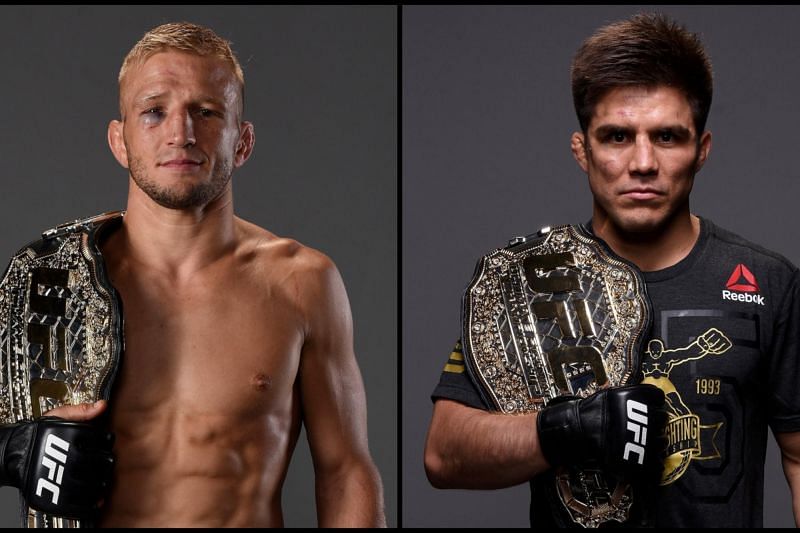
For once, this was a UFC show that wasn’t cancelled due to an injury; rather, the promotion’s move to the ESPN network – and their attempt to push the ESPN+ streaming service – was largely to blame for the demise of UFC 233. The show was announced in late November 2018 and was supposed to be headlined by the Flyweight title ‘superfight’ between champion Henry Cejudo and Bantamweight champion TJ Dillashaw, but things changed soon after.
The decision was made to have the fight headline the UFC’s debut on ESPN+ instead, and as that show was already set to be part of the Fight Night series – UFC Fight Night 143 to be exact – the promotion decided to ‘postpone’ UFC 233, stating that it’d be rescheduled for a later date. Just weeks later though, UFC 234 was announced as taking place in Australia on 9th February – meaning UFC 233 would join UFCs 151 and 176 in the graveyard.
As for the fights scheduled for the scrapped card? Strangely enough, not a single one joined Cejudo vs. Dillashaw on Fight Night 143; 5 moved to the UFC’s first show on the ESPN TV network, 2 moved to other Fight Night cards, 1 to UFC 235, leaving one fight to be scrapped. That fight? Coincidentally, Joseph Benavidez vs. Deiveson Figueiredo – a fight that would take place in 2020 and become the UFC’s first Flyweight title clash since Cejudo vs. Dillashaw.